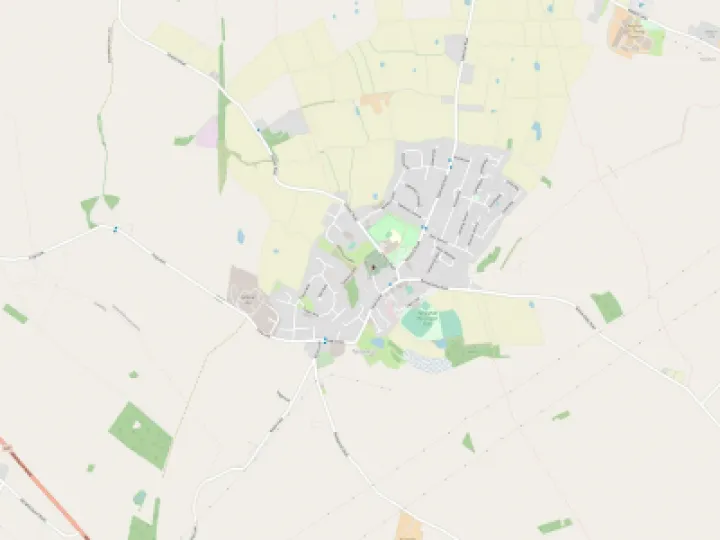Protect Yourself from Scams on Black Friday and Cyber Monday

[Tips to protect yourself from Black Friday and Cyber Monday scams
How to spot shopping scams when you're hunting for bargains -- and what to do when you find them.]
Everyone wants the deal of a lifetime on Black Friday -- including potential thieves and scammers. And for this nefarious crew, an unwitting shopper is the perfect present.
Fortunately, by taking a few precautions and putting out the feelers for fraud, you can avoid delivering yourself into their awaiting hands.
Five signs of a high-alert scam
When you're hunting through Black Friday deals, be wary of these five major red flags of a possible scam.
1. A deal that's too good to be true.
Scammers need your attention before they can take your money. And standing out from a sea of already insane discounts can result in some eye-watering low prices designed to lure you in.
Be wary of specials that are too cheap when compared with other discounts. New flat screens for £20, Ugg boots at £6 a pair and brand-new iPhones for £30 should raise major eyebrows.
Actual deals tend to run along the lines of 20% off or free delivery.
2. Suspicious emails designed to get your clicks.
A lot of Black Friday and Cyber Monday takes place online -- and so does the business of ripping you off. Scammers will beat down your inbox with email that appears to be from a "legitimate" shopping brand or finance provider. This is all an attempt to gain your trust so that you click, share or open what they're peddling, sometimes unleashing viruses, trackers or other malware on your device.
If you're not sure of -- or don't trust -- the source of an email, avoiding clicking any links you find in it. Instead, go directly to the brand's or provider's site to verify the deal. Or a warning against it.
3. Phishing scams that ask you to fork over your details.
It's possible that you've entered your childhood nickname, best friend's last name or favourite author when signing up for an online account. These personal details are often innocent enough, used to verify your identity when you forget your password.
But if a site wants you to verify this info without your prompting or is suddenly interested in your credit card numbers, halt what you're doing and close down your browser to avoid becoming a victim of phishing -- a scam that involves active attempts to get your valuable private details.
4. Unsecured connections and widespread typos.
A key rule of thumb when shopping online is to check that you're on an encrypted page. Look for a padlock to the left of your page's URL, which itself should start with "https," indicating a secure site. If you don't see either, the site you're on may not be legit.
Also be on the lookout for typos, grammar mistakes and otherwise mangled English that could be a sign of a spoofed site. Worldwide scammers work quickly -- and shoddily. Copy in need of editing could be a sign that a Nigerian prince -- and not the retailer you're hoping for -- is at the other end.
5. Suspicious gift cards from third-party sites.
Another go-to gimmick for scammers is Black Friday gift cards. If you find a deal for a greatly gouged gift card or even a coupon offering pennies off your pound, make sure you're dealing with a legitimate source. Many unsuspecting shoppers have fallen prey to counterfeit or nonactivated cards from sellers that go into radio silence after walking off with your cash.
Rather than risk losing your money to a deal that's not on the up and up, buy your gift cards directly from retailers or supermarket kiosks. And get a receipt that proves it's correctly activated for use.
How to shop safely on Black Friday and Cyber Monday
- Stick to trusted, verified websites. By relying on the brands you already shop with and trusted Black Friday retailers, you're in a better position to dodge dirty deals.
- Take advantage of your bank's protection. Banks employ sophisticated systems to detect potential fraud on debit and credit cards. Many guarantee zero liability and reimbursement for unauthorised debit card purchases. Yours may also allow for shopping through Apple Pay or Android Pay, combining biometrics with other digital safeguards, or even setting up two-step authentication that requires a code from a text message to complete your purchase.
- Keep an eye on your transactions. Regularly monitor transactions on your cards through your online account, and contact your financial institution immediately if you suss out any suspicious spending.
- Avoid purchases on public Wi-Fi. Cyber criminals know how to thwart unsecured Wi-Fi to gain access to the info you send over it. Save your spending for more secure home connections, using free services to surf news and celebrity gossip instead.
- Double-check apps before downloading. Cyber criminals are getting smarter and smarter. There have been instances where they have created fake shopping apps designed to look like the real deal and scoop up your credit card information when you go to make a purchase. Look for red flags like a typo in the name of the app, typos throughout the page and a low number of reviews.
HAPPY and SAFE SHOPPING!
Get In Touch
Tattenhall Online is powered by our active community.
Please send us your news and views using the button below:







